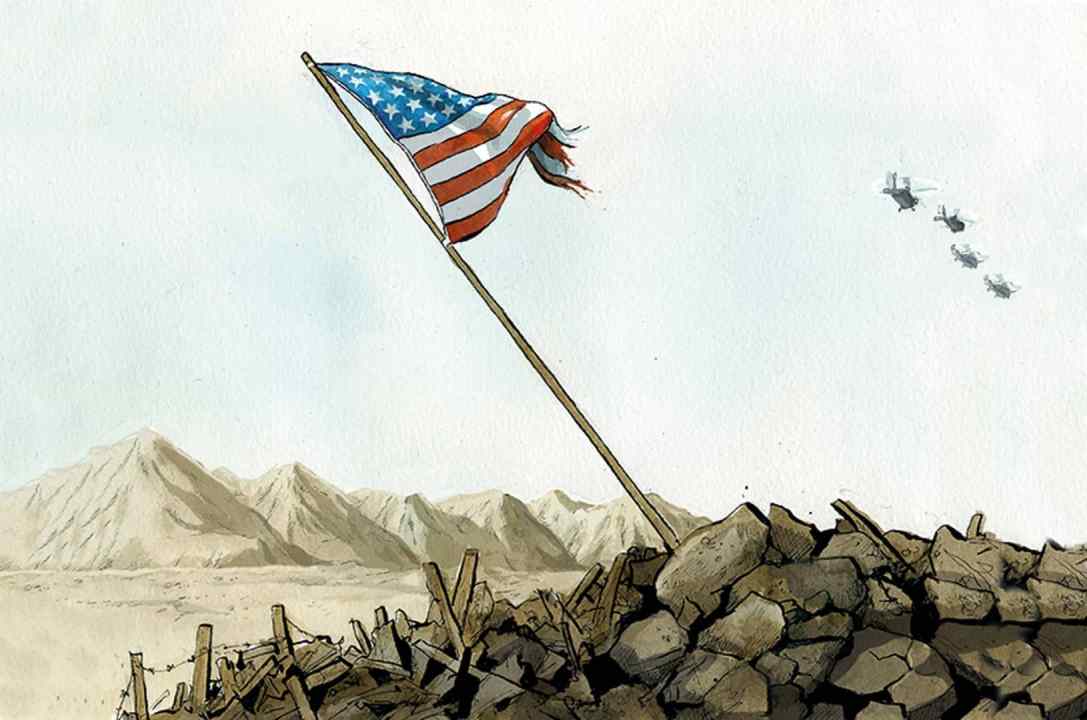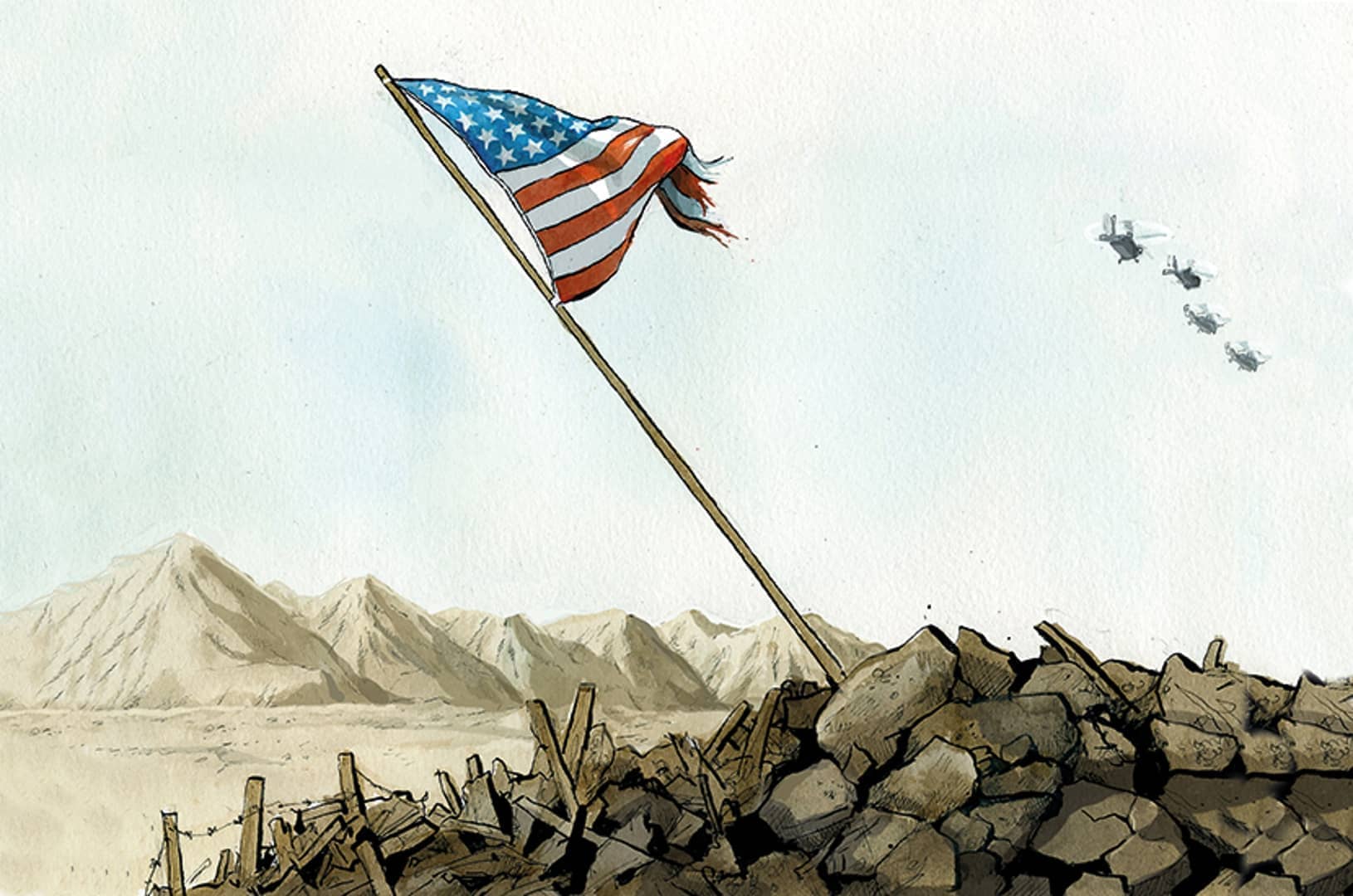A year ago we scuttled out of Afghanistan. We abandoned the aim we and the Americans had proclaimed so noisily of bringing Afghanistan into the twenty-first century so that the Taliban could never triumph again. We left behind many Afghans who had helped us at the risk of their lives.
To most of the world it was obvious that the Americans and their allies had been comprehensively defeated. Our own politicians, generals, diplomats, spies and aid advisers have been tumbling over one another to distance themselves from the mess. At first they tried to argue that it was too soon to reach such a depressing conclusion. After all, the Taliban had promised the Americans that they would no longer harbour international terrorists. A reformed Taliban would run a regime more in accordance with our ideas of human rights. Some of our expensive reforms would stick. Would that not be a kind of success?
We reinforced failure for another decade, until we finally learned that pouring money into a very poor country simply fuels corruption
That feeble argument was never going to wash. The Taliban have reiterated their contempt for our ideas of human rights. They have continued their executions and floggings and their denial of basic freedoms for women. Al Qaeda’s Ayman al-Zawahiri lived almost openly in a posh suburb of Kabul until he was killed by an American drone. Ordinary Afghans are falling deeper into poverty and are menaced by famine.
Their alibi in tatters, the great men (and a few women) in London scurried around for someone to blame. They naturally began by blaming each another. They then homed in on two prime scapegoats: the Americans and the Afghans themselves. The Americans had failed to take our advice, based on success in Ireland and Malaya, that you could beat the terrorists by winning hearts and minds. Instead the Americans developed their own theories, and poured in troops and weapons until they too discovered that you can’t win people’s hearts and minds by killing their women and children with misdirected bombs – something both they and we called ‘collateral damage’, a dehumanising euphemism if ever there was one. Then, for domestic reasons, presidents Trump and Biden publicly named a day for withdrawal long in advance, thus confirming the Taliban in their conviction that victory was only a matter of time. The Americans never fully conveyed their inadequate plans for withdrawal to their British allies. We were left scrabbling in their wake.
We could not express our resentment too loudly, for fear of harming our one-sided ‘special relationship’ with America. So we joined the Americans in the much easier task of blaming the Afghans. Had we not given them all the money, the advice, the training, and the support the Afghans needed to construct a modern democracy? Had we not shown them how to regenerate their economy, not least by ridding it of corruption and a disastrous dependence on drugs? Had we not built hospitals and schools, and transformed the position of women? Had we not equipped them to beat the Taliban on the battlefield by generously financing an army trained to fight like we do? Had they ever shown us any gratitude?
The problem with these excuses is that, even without hindsight, it was clear that the mission could not succeed. By 2008 America’s top general was saying that things in Afghanistan were going the wrong way and getting worse. The British ambassador in Kabul was telling London the same. But you didn’t have to be a general, a spy, or a diplomat to understand what was happening. Courageous journalists, well-informed academics and disgruntled veterans were writing about it and anyone with a modicum of common sense and a dash of scepticism could work it out for themselves. I returned from Afghanistan in September 2008 sure that we would leave with our tails between our legs. The question was only: When?
And yet we reinforced failure for another decade, until we finally learned that pouring money into a very poor country simply fuels corruption, and that if there is one thing you don’t need to do, it is to teach Afghans how to fight. A ragtag collection of Taliban fanatics and disgruntled peasants, armed only with simple weapons, defeated the British in Helmand, and fought the Americans to a standstill. They won because they believed in their cause. The Afghan army saw no reason to die for a corrupt government dominated by foreigners. Why were we surprised by that?
Afghanistan is a far distant country, of which we knew little. The politicians can now afford to forget it, since it no longer cuts much ice with their electors – except for those whose loved ones were killed or maimed in the fighting.
Ukraine is a lot nearer. The outcome of its struggle with Russia will affect our interests directly. Let’s hope that’s enough to ensure that this time we stand by our commitments, and do not betray the Ukrainians as we betrayed the Afghans.







Comments